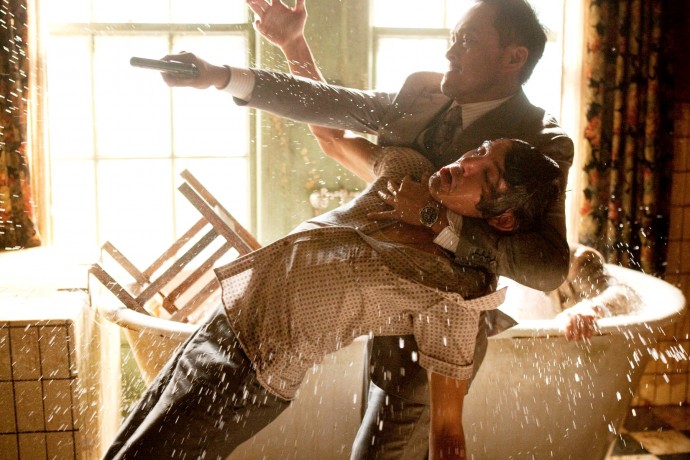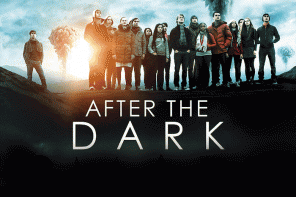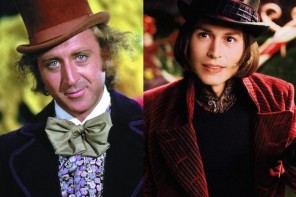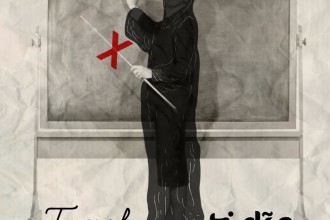Inception (2010) by Cristopher Nolan or The American Dream
Dear readers, I am glad to anounce that this article won’t end up in the list of uncountable reviews trying to dissect Inception’s structure or to decipher its ending about dream and reality and so forth. Instead of that, I will try to point out what this movie tells us about Hollywood’s ideology, whether it tells it on purpose or not.
“Inception” was released in 2010 by Warner Studio. Christopher Nolan wrote and directed it. Though the concept of the film is highly complicated, this movie has still numerous Hollywood aspects. Its budget was collossal ($ 160 millions), his cast includes some of the most recent and valuable Hollywood actors, such as Leonardo DiCaprio, Joseph Gordon Lewitt or Michael Cain. The aestethic is clearly a good example of a superproduction : an omnipresent infuriating music (Hans Zimmer) and a quick and sharp editing. Nevertheless, it differs from the common Hollywood film on many points which I will evoke later on.
As most of you may already have seen this film or been hammered by the heavy advertising campaign that went on with the release of “Inception”, I will try to be brief while summing up its plot. Dom Cobb (Leonardo DiCaprio) manages a flourishing little enterprise. He and his staff have found a way to enter in persons’ dreams and therefore find their secrets : this process is called extraction. After the failure of a mission for the powerful Cobol Inc., Mr. Saito asks them to work for him. One of his most important competitors, Maurice Fisher, is about to pass away and Saito wants the team to convince the heir (Robert Fischer, played by Cillian Murphy) to dismantle his father’s Empire. In order to do so, the crew must reach this young man’s deepest subconscious and plant the seed of the upcoming change. This process is called inception.
Though this film is science-fiction, Nolan portrays a world where major companies can “become new superpowers, controlling the energy supplies of half the world” (Fisher-Morrow). Their power prevail upon Law, Mr. Saito has enough power to make all the charges against Cobb dropped just by picking up his phone. The American Dream ?
I guess we can compare the bunch of dream wanderers to the Hollywood industry. In the first place, both are a dream makers/sellers/factories. Then, we can link every character of this wanderers to a specific craft of a film crew. As Ariadne (Ellen Page) is the Architect and provides the dream’s frame, we can consider her as the screenwriter. Yusef can be seen as some technician, with his drugs and sedatives that make this experience possible, they call him the Chemist. Eames (Tom Hardy) can embody different personalities within a dream, therefore that makes him the actor. Cobb is the leader of this enterprise, he is the director, Nolan’s alter ego. Saito being the sponsor of this journey through dreams, we’ll see him as the financial supporter of the movie, the studio itself. Arthur is the producer. Finally, Robert Fischer is the target of this whole machinery, the person whose head is penetrated : he is the audience.
That being said, what does this film tells us about Hollywood?
When we first encounter with Dom Cobb and Arthur they are performing an “extraction”, they are trying to steal something Saito has hidden somewhere in his dreams. They are commissioned by some major financial company. In a nutshell : they sell dreams or more precisely the content of dreams. That’s the most common fact we could say about the film industry. Noticing the people they work for is interesting : major ugly corporations. After the failure of their mission on Saito’s mind, Cobb and Arthur are forced to run away from the henchmen of this Cobol company. Let’s assume Cobol is another major film studio. Cobb’s tendency to work with major business companies must be put in parallel with Hollywood’s contamination by financial experts. Major film studios are not self-entities anymore, they are just part of wider conglomerates. Therefore, the originality of a film is not a criteria to choose whether it will be produced or not. That lead to a significant loss of ambition of these studios. It has now become rare to see Hollywood produce a movie which is not either a sequel, a remake or an adaptation, of a comic book, not Tolstoy of course. Yet, Inception is one of the exceptions to that rule. It comes from what we call a “spec script”, that is to say an original screenplay that was not ordered by the studio in any way.
As it is more difficult to market a film that does not refer to any previous film or comic book the audience already know, most of these original screenplays rely on what we call a “high-concept”. A “high-concept” is a narrative that can be easily pitched with a succintly stated premise. For example, Jurassik Park’s high-concept is “what if dinosaurs were back on Earth?”, or Mrs. Doubtfire’s high-concept could be “Tootsie meets Kramer vs. Kramer”. Films whose narrative relies on this are easier to market. I doubt Nolan could avoid this pitching exercise when presenting his Inception project to the studios in 2001. In fact, there is one scene that may allude to pitching : it’s the brainstorming scene with all the crew. In this scene, Cobb & co are trying to think through the words that will bring the idea into Robert Fischer’s head that he must dismantle his father’s Empire. Doing so they kind of resemble a pool of screenwriters trying to figure out how to sell their screenplay by expressing it into the most emotional and simple terms. They are working on a “high-concept”.
Somehow, this brainstorming scene also reminds of another kind of work : advertising. In addition to the fact that they work for big financial corporations, Cobb and his crew use the tools and vocabulary of an advertising agency. Except these guys sells ideas. Cobb speaks “Subconscious is motivated by emotions, not reason.” Here you can replace “subconscious” by “purchase”. Another example, Arthur says “How do you translate a business strategy into an emotional concept?” : that’s exactly the assignment of advertisers. When Eames says they could suggest Fischer to break-up the company as a final “screw you” to his old man, Cobb replies “No, because i think positive emotions always prevail on negative emotions. We are all looking for reconciliation, or catharsis.” There we may find some of the elements of a good ad : positive thinking. The troubling point is that it can also apply to Hollywood’s obsession for the “happy ending”. The major film studios are so intricated with big companies that their ideologies have finally completely melted together.
Cobb and his staff can be seen either as an advertising agency or as an Hollywood production. In both ways they manufacture dreams. In fact, I found myself unable to choose what was the most pertinent interpretation. Nevertheless my very unability to distinguish the advertising world from the film crew is revealing of what Hollywood may gradually became : a sandwich man.
In this particular movie it’s even more troubling to point this out, as Nolan intended it to be an exception to what is commonly produced. Product placement or “embedded marketing” are the most common traits of the sandwich-man-film, yet the almost complete absence of brands in Inception makes this film’s financing quite diferent from others. Nonetheless, this film illustrates Hollywoo’s capitalist ideology. My guess is, this aspect of the film is unvoluntary. Just as Cobb unfortunately experienced it with his late wife, you can seed ideas into people’s mind that will grow out of your control. Whether intended or not, films always convey ideas. Yet, working in the Hollywood industry had, has and will always have a strong effect on the political and ideological content of a movie.







